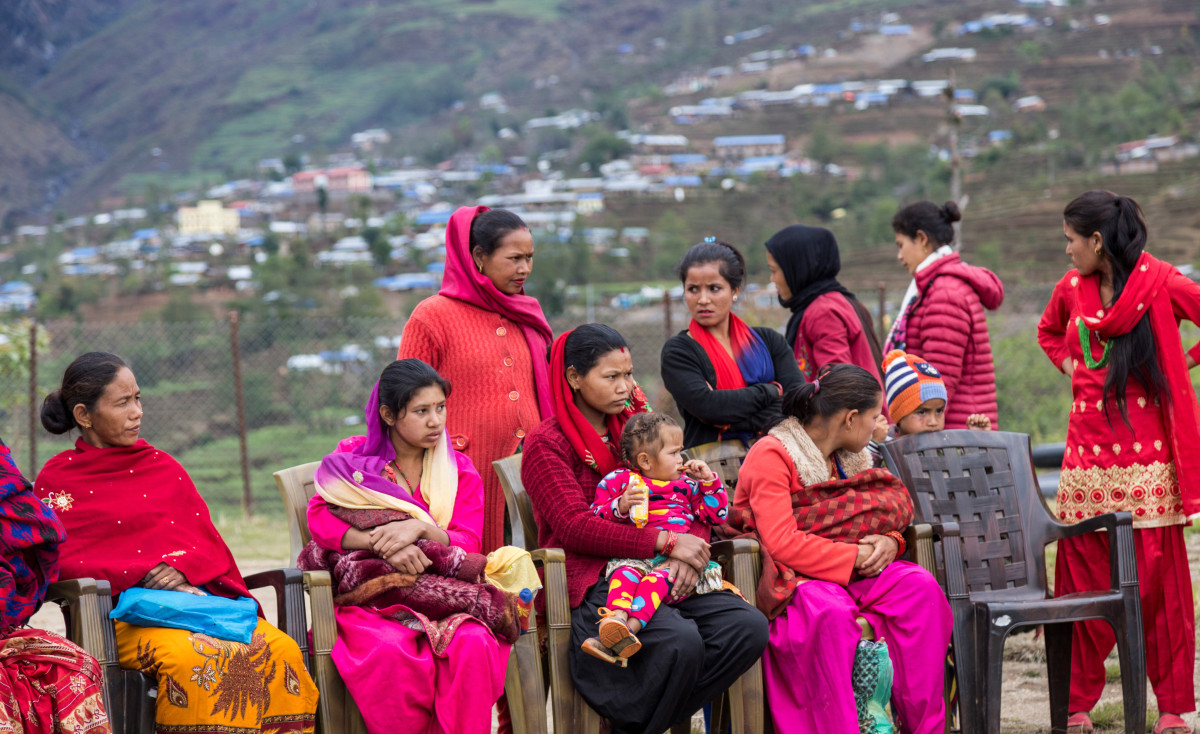A message from Maya: mHealth for Nepal’s young mothers
Published: Jul 10, 2020 Reading time: 5 minutes Share: Share an articleParbati lives with her family in the mountainous village of Sindhupalchowk, in northern Nepal. She was married at the age of 17 and soon got pregnant, though she didn’t realise it until she visited a doctor five months later.

Parbati’s story is not unusual in this part of Nepal; there are many girls and young mothers who lack access to basic information about pregnancy and don’t know where to turn for help. In fact, adolescent mothers who marry or elope at a young age often find themselves in vulnerable situations, and would benefit from learning about empowerment and good parenting techniques.
To address this need, People in Need (PIN) and its local partner Hamro Palo launched the Hello Saathi pilot project, with funding from Grand Challenges Explorations, an initiative of the Bill & Melinda Gates Foundation. The project focused on mental and infant health, gender norms among rural adolescents, and the wellbeing, safety, and empowerment of young mothers.
One of the project’s aims was to use technology to help young mothers enhance their mental wellbeing and learn good maternal and infant health practices. Using an mHealth Interactive Voice Response (IVR) system, voice messages were sent twice a week to the mobile phones of a group of young mothers between the ages of 14 and 19, as well as to the area’s Female Community Health Volunteers (FCHVs).
"Hello Saathi, ma Maya”
The IVR system provided users with multiple options: they could listen to the audio messages more than once, record their questions, or get information on other services for young mothers in crisis. These services included counselling helplines, sexual and reproductive health assistance, support for sexual and gender-based violence, and suicide prevention. Users were able to unsubscribe from the messages at any time.
“Maya” was the main character in the program. Messages were recorded in Maya’s voice, and delivered as narratives, role plays, and quizzes. The messages also encouraged healthy behaviour by promoting the government’s Safe Motherhood Program and the role of frontline workers such as FCHVs.
Working with young mothers, PIN designed the automated messaging program to ensure that the tips provided were culturally appropriate and relatable for the age group. Because smartphone use and literacy rates are low in rural areas, voice messaging over simple mobile phones is an accessible medium and does not require a large project staff. Mobile messaging also allows young mothers to digest mental health information in a comfortable setting without the associated stigma.
Parbati says, “I gave birth to my daughter at home, and I didn't know how to take care of her. I was sick and couldn't eat properly. I was also worried that something would happen to me or my baby." In addition to making her feel less anxious, the IVR system taught Parbati that she needed to include foods such as leafy greens, beans, fish, and meat in her diet after childbirth information that she shared with a neighbour who also gave birth recently.
A total of 65 mHealth IVR messages were designed, and these were paired with six quizzes that assessed recipients’ comprehension. At the conclusion of the eight-month project, there were significant positive changes in the wellbeing of the young mothers, including improvements in their mental health and greater participation in household decision-making. Mothers who received the messages also felt more empowered, and reported measurable improvements in community awareness of good maternal and infant health practices.
For example, 74 percent of mothers targeted said they shared the messages with friends and family, and 47 percent said their husband had listened. As one 18-year-old mother noted: “My family members are always excited to listen to the IVR audio messages. After listening to the message, we always discuss the topic. In one of the audio messages, Maya said that smoking and drinking alcohol during pregnancy is dangerous for the health of baby and mother. From then on, my sister committed to stop drinking alcohol.”
Parbati adds: "When I received the notification one hour before the message came, I would get excited thinking about what Maya would tell me. Sometimes, when I missed the call, I felt sad, but I was glad that I could listen to the call the next day at the same time. I listen to the calls together with my husband. Now, whenever I am stressed, I talk with my friends and share my feelings and then I can be at peace."
The program also helped to raise the profile of Nepal’s FCHVs. One of the volunteers, Punya Maya Gurung, noted that the messaging programme helped people realise that FCHVs play a vital role in the community. Gurung says: “Before the programme, the community did not value us, and [people] thought our jobs were not important. But this programme has highlighted our significance, and people have started respecting health volunteers."
What do we want to learn?
- The young mothers and FCHVs who participated in the scripting of the IVR messages were interested in topics such as:
- The signs of pregnancy and pregnancy counselling;
- Strategies for keeping mother and baby healthy;
- Skills for properly handling babies;
- Health conditions that can affect pregnant women and babies, and their symptoms;
- Vaccination, immunisation, and the prevention of communicable diseases;
- Breast feeding and essential nutrients for mother and child;
- Allowances and incentives provided by the government, such as transportation and antenatal visits;
- Mental illness and anxiety, and coping strategies to reduce stress and ensure the mental wellbeing of new mothers.







